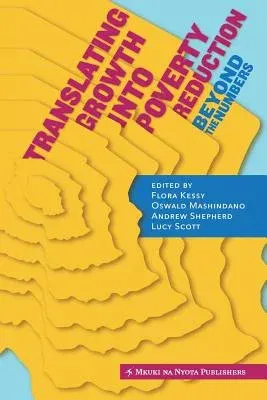Tanzania is a politically stable, much aided country that has
consistently grown economically during the first decade of the
millennium, while also improving its human development indicators.
However, poverty has remained persistent, particularly within rural
areas. This collaborative work delves into the reasons why this is so
and what can be done to improve the record. The book is the product of
both Tanzanian and international poverty experts, based on largely
qualitative research undertaken within Tanzania by the Chronic Poverty
Research Centre (CPRC). The authors highlight and discuss the importance
of macro- and micro-level causes of the persistence of poverty. The
latter, on which the book is focused, centre around a negative dynamic
affecting a large number of poor households in which widespread failure
to provide household food security undermines gender relationships and
reduces the possibility of saving and asset accumulation which is
necessary for escaping poverty. This results in very low upward
mobility. Vulnerability is widespread and resilience against shocks
minimal, even for those who are not absolutely poor. Through an in-depth
and broad analysis of poverty in Tanzania, the book provides alternative
conclusions to those often repeated in the poverty discourse in
international and local arenas. The conclusions were reached with the
specific aim of informing political and policy debates within Tanzania.


